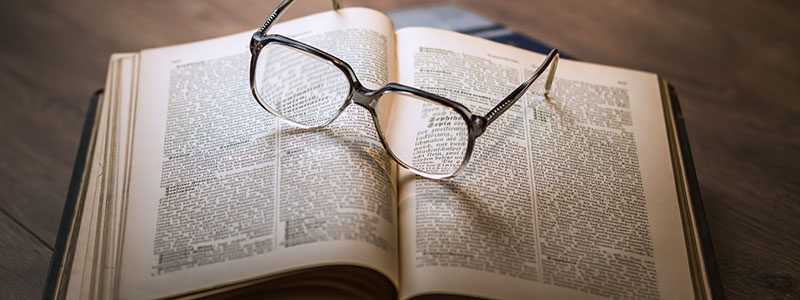I have always found the expression, “The Practice of Law,” suggestive. When I recently asked a lawyer friend what he was up to, he said he was still practicing because he hadn’t gotten it perfect yet. His comment was tongue in cheek, of course, but it reminds me of the many opportunities we have to learn from our experiences.
One way of doing this is to maintain a practice bible. A practice bible is a collection of personal stories, anecdotes, reminders, and a professional code to live by. It includes your aspirations, memorable characters, helpful references, and other handy information. The bible should be updated and reviewed regularly. It’s not a journal as much as a reference bank to learn from.
What did you take away from your last trial? Write it down. You may draw inspiration ten years from now. How did that witness tie you in knots? What could you have done better to neutralize his/her testimony? Honestly critique yourself, so your future self can remember and benefit.
Use your bible to record practice aphorisms that might inspire you. I recently wrote in my bible, “the loudest lawyer in the courtroom is the most frightened.” The next time some loudmouth goes on a courtroom rant, I will chuckle to myself.
I add other odds and ends. For example, I recently read about Boris Johnson’s “dead cat strategy” used during the Brexit negotiations. The dead cat strategy involves throwing a dead cat on the conference table. Of course, this is a metaphor. The point is to “introduce a dramatic, shocking or sensationalist topic to divert discourse away from a more damaging topic. Get people talking about the dead cat so they won’t be talking about the issue causing you grief.” Imagine how you could use this strategy in a tense negotiation or when you have weak cards with the judge!
I also maintain a bank of expressions, quotes, metaphors, and words I like for use in briefs, arguments, or pleadings. Whenever I prepare for an argument or have a significant writing project, I consult myself by reviewing the bible.
We have many experiences to learn from. If you record them, they instruct. If not, they are lost to the haze of time. Use the practice of law as a personal training exercise: refine your expertise, learn from your mistakes, and enhance your skills. Lifelong learning is critical to being a successful lawyer.
Practice does make perfect!




